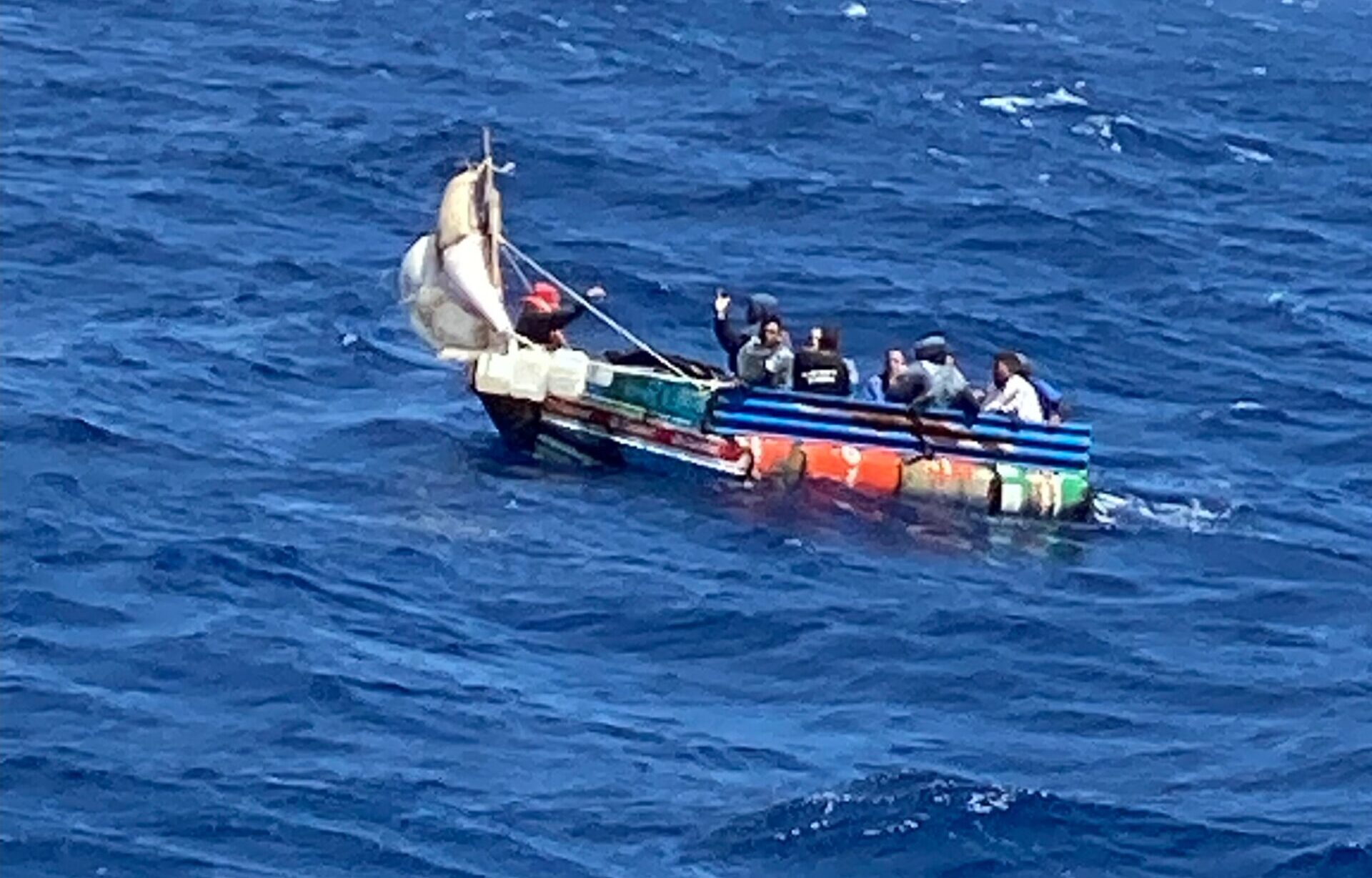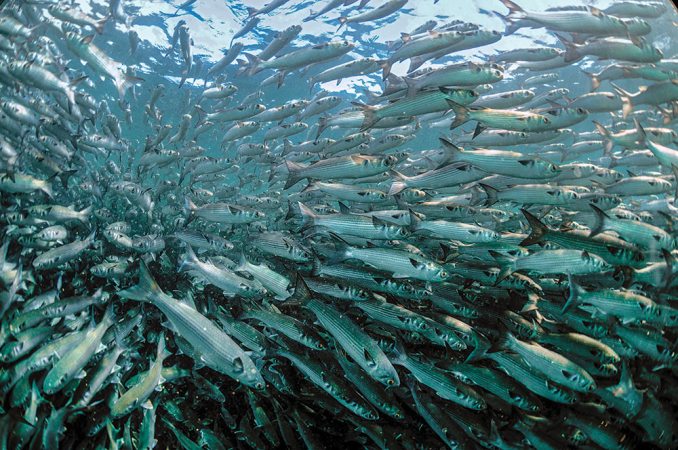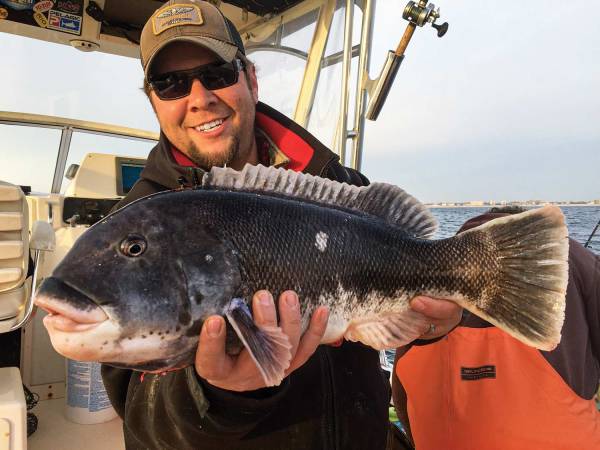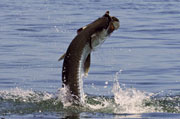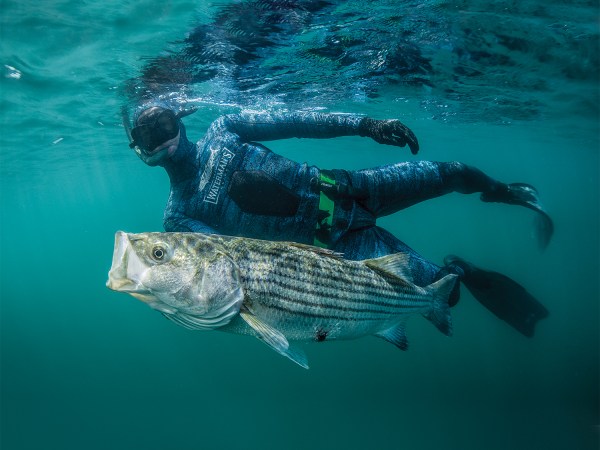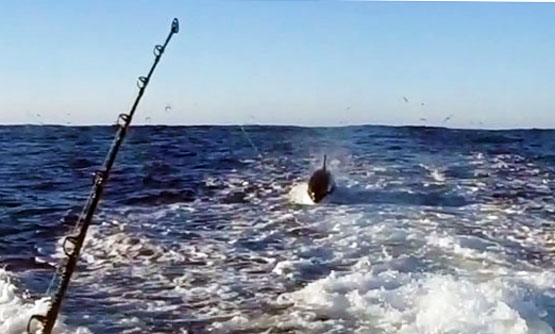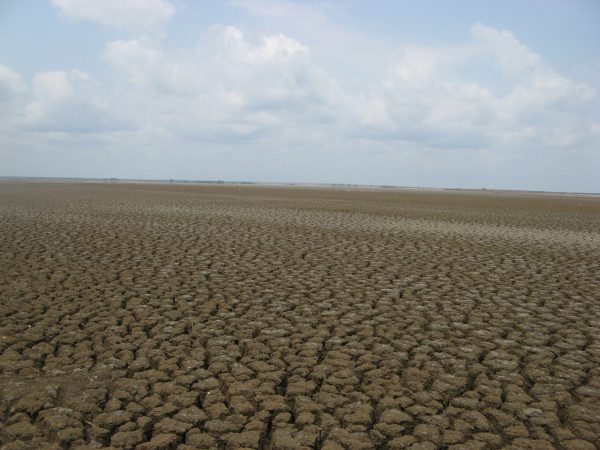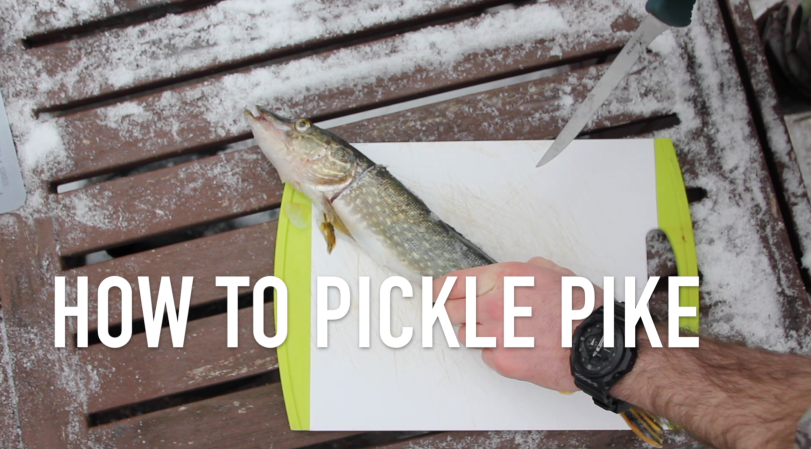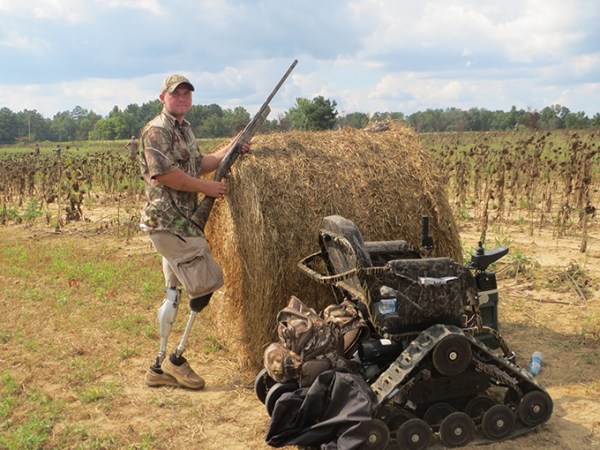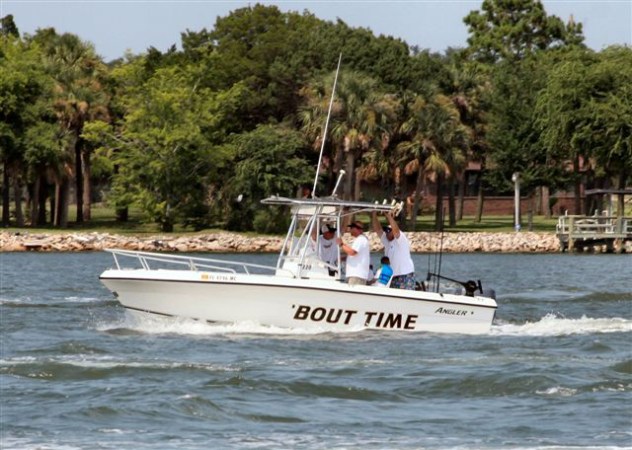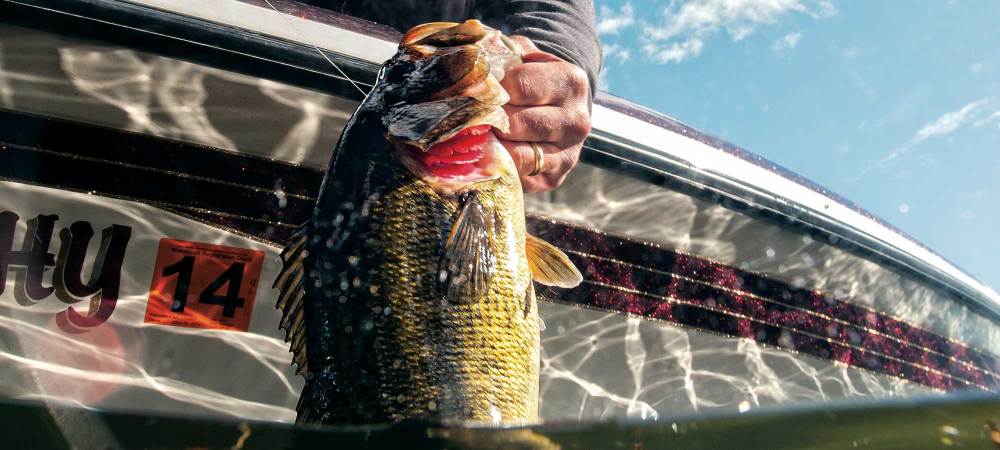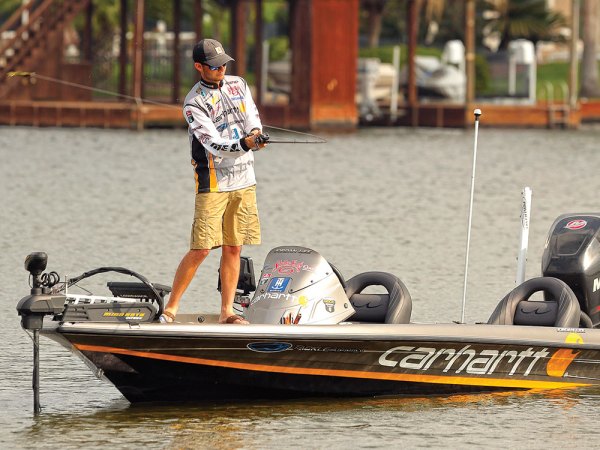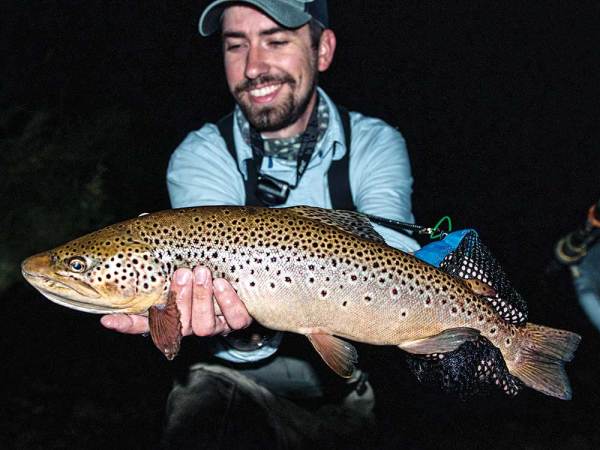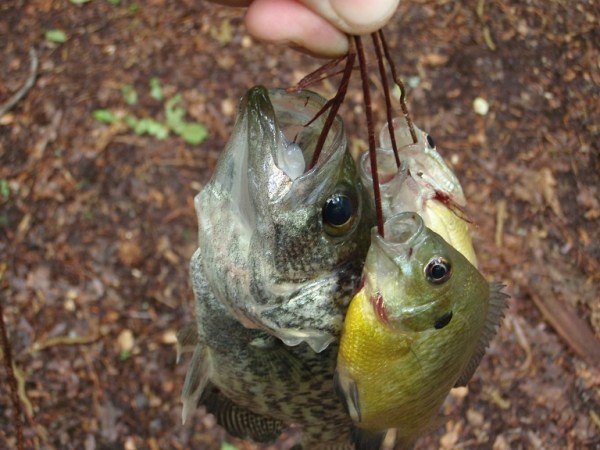The 53-foot Hatteras sportfishing boat Ana Banana was roughly 20 miles off the east coast of the Middle Florida Keys last month when Captain Joel Brandenburg spotted something bobbing in the rolling waves.
“We were headed for a day of tuna and mahi [dolphin] fishing with four anglers from Wisconsin when I saw something about a quarter-mile away, and quickly learned it was a small raft with 10 men on board,” says Brandenburg. “It was rough, and the raft was taking on water. Two of the men were bailing non-stop to keep the raft afloat.”
Brandenburg contacted the U.S. Coast Guard on his boat radio to alert them of the situation and the location of the raft, which was near the Marathon Hump. Authorities told Brandenburg to stay close to the raft but advised him not to try any type of boat-to-boat rescue. The Coast Guard estimated they’d have a cutter at the scene in about two and a half hours.
“The men in the boat were out of drinking water and [looked] severely dehydrated, so we got close with our Hatteras and pitched them a case of water,” says Brandenburg. “They were staying afloat so long as they bailed water out of the raft.”

Dolphin commonly school around any type of floating object in the ocean, and Brandenburg says they made a couple passes around the raft—and caught a few fish—while they waited for the USCG to arrive.
Brandenburg explains that the raft appeared to be made from cut 55-gallon drums, which were welded into a floating raft about 18-feet long. The men had a small sail to maneuver the boat and only a single paddle.
About two and a half hours after he radioed the USCG, a cutter arrived on the scene to rescue the refugees. The cutter sent a smaller inflatable Coast Guard boat with twin outboards to rescue the men. Then Brandenburg left the scene with his charter fishing party and headed back to Marathon around 3 p.m. He recorded the event with several cell phone videos.
The Marathon Hump is an underwater mountain and a well-known fishing area where depths range from 480 to 1,150 feet. It’s also a noted spot for big sharks, including great whites, although oversize tigers and bull sharks are more common.
“It’s not the place to capsize a raft, because sharks can be a real problem there,” says Brandenburg, who’s been guiding out of Marathon for three years; before that, he ran a long-time charter business out of Tampa Bay. During his first two years running charters out of Marathon, Brandenburg discovered just two abandoned Cuban rafts. But during the last 12 months, he’s found 15 Cuban rafts—only two of which had passengers.
“[I’ve seen] a real surge of Cuban refugees trying to reach the U.S. over the last year,” Brandenburg says. “Lots of Keys anglers and captains are seeing their rafts and calling in rescues from the Coast Guard.”
Brandenburg says many Cubans who’ve made the journey in such homemade rafts describe the 90-plus-mile passage as a perilous trip that can take 8 to 10 days. Most refugees suffer from dehydration and even hallucinations, or drown. “I know a number who have made it,” says Brandenburg, “and it’s a harrowing experience.”

